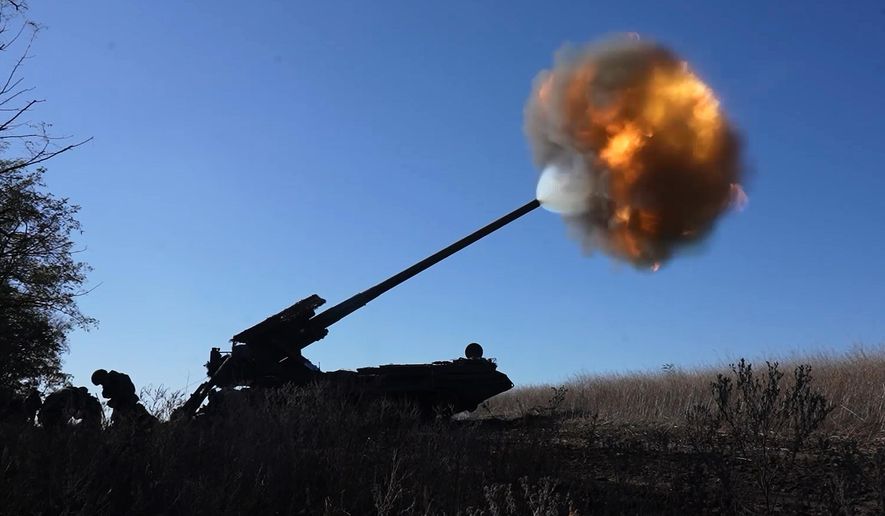The thorny question of whether Ukraine will cede any territory to Russia under the terms of a U.S.-backed peace deal remained unanswered Monday as Kyiv’s negotiators returned home after intense discussions with top Trump administration officials in Geneva.
Ukrainian President Volodymyr Zelenskyy said on social media that he will determine his next steps after a full briefing from his delegation. One member of that delegation, Ukrainian presidential adviser Oleksandr Bevz, told reporters that the issue of potential territorial concessions from Ukraine to Russia, a key plank of the Trump administration’s 28-point peace plan revealed late last week, is unresolved and can be decided only at the head of state level.
His comments could suggest an opening for the long-awaited meeting between Mr. Zelenskyy and Russian President Vladimir Putin, and perhaps including President Trump.
All sides hailed significant progress in the push to end the Russia-Ukraine war, which is nearing its fourth year. Russian officials expressed openness to some of the core ideas in the U.S. plan.
So far, no one has provided specifics about any changes to that plan during the Geneva talks. Mr. Zelenskyy said in a video address Monday that the plan has been narrowed down and no longer has the original 28 points.
He said he would discuss several of the remaining points directly with Mr. Trump.
SEE ALSO: Army Secretary Driscoll’s profile grows as Trump administration’s ‘serious guy’
“As of now, after Geneva, there are fewer points, no longer 28, and a lot of the right things have been taken into account in this framework,” Mr. Zelenskyy said, according to English-language media accounts of his remarks. “I will discuss sensitive things with President Trump. Ukraine will never be an obstacle to peace. … We are ready to work as quickly as possible.”
In a post on Truth Social, Mr. Trump expressed optimism.
“Is it really possible that big progress is being made in Peace Talks between Russia and Ukraine??? Don’t believe it until you see it, but something good just may be happening,” the president said.
Mr. Trump has set a Thanksgiving Day deadline for the sides to make a deal.
The U.S. peace proposal, the first such formal plan put on paper by the Trump administration, sparked outrage in some political circles in the U.S. and across Europe because of perceived favoritism and deference shown to Moscow.
The plan called for territorial concessions to Russia of Ukraine’s Donetsk and Luhansk regions, along with Crimea, which Russia has controlled for more than a decade. Russia would keep other chunks of Ukrainian territory as part of the deal, though it would have to pull its troops out of some currently occupied Ukrainian land.
SEE ALSO: Russian attacks kill at least 7 in Ukraine as talks on peace plan continue
The proposal would ban the deployment of NATO troops to Ukraine and effectively close the door on Ukrainian membership in the alliance. Ukraine would also face significant restrictions on the size of its own military, and Russia would gain relief from some economic sanctions.
All those have long been demands of the Russian side. Mr. Putin spoke favorably of the plan Monday.
During a phone call with Turkish President Recep Tayyip Erdogan, Mr. Putin said the U.S. plan “can fundamentally be laid into the basis of the final peaceful settlement,” according to Russia’s state-run Tass news agency.
It’s not clear which, if any, of the specific provisions have been adjusted since before the Geneva talks.
German Chancellor Friedrich Merz said the plan had been adjusted “in significant parts,” but he did not offer details.
The initial framework called for the U.S. and Europe to provide security guarantees to Ukraine, although it lacked specifics of such an arrangement, which Ukraine has long sought.
Secretary of State Marco Rubio, who led the U.S. delegation along with envoy Steve Witkoff and U.S. Army Secretary Daniel P. Driscoll, indicated Sunday that the two sides aimed to identify the specific points in which changes would need to be made for Ukraine to accept the proposal.
“We have achieved that today in a very substantial way,” Mr. Rubio said without elaborating.
Analysts warn that the proposal contains fundamental flaws.
“Security is the principal problem,” John E. Herbst, a former U.S. ambassador to Ukraine and now senior director of the Atlantic Council’s Eurasia Center, wrote in an analysis.
“You have massive aggression by a nuclear superpower against its neighbor. One of the points in the reported draft appeared to suggest giving the Kremlin strategic territory that it has been unable to conquer in over three and a half years of the massive invasion. This would seem to be a fatuous idea, rewarding the aggressor,” he wrote.
“The plan also talks about limitations on arms that Ukraine could have. Here too, why are there limitations on the arms and forces of the victim nation and none on the aggressor?” Mr. Herbst wrote.
European leaders have deep reservations about the notion that the U.S. will make unilateral decisions about NATO, an alliance comprising 32 countries.
“The negotiations were a step forward, but there are still major issues which remain to be resolved,” Finnish President Alexander Stubb said on social media. “Any decision falling in the remit of [the European Union] or NATO will be discussed and decided by EU and NATO members in a separate track.”
Mr. Stubb’s nation, Finland, joined NATO in 2023 in direct response to Russia’s invasion of Ukraine. Sweden did the same.
European leaders are expected to hold their own virtual meeting Tuesday to discuss the state of Ukraine negotiations.
• This article is based in part on wire service reports.
• Ben Wolfgang can be reached at bwolfgang@washingtontimes.com.




Please read our comment policy before commenting.